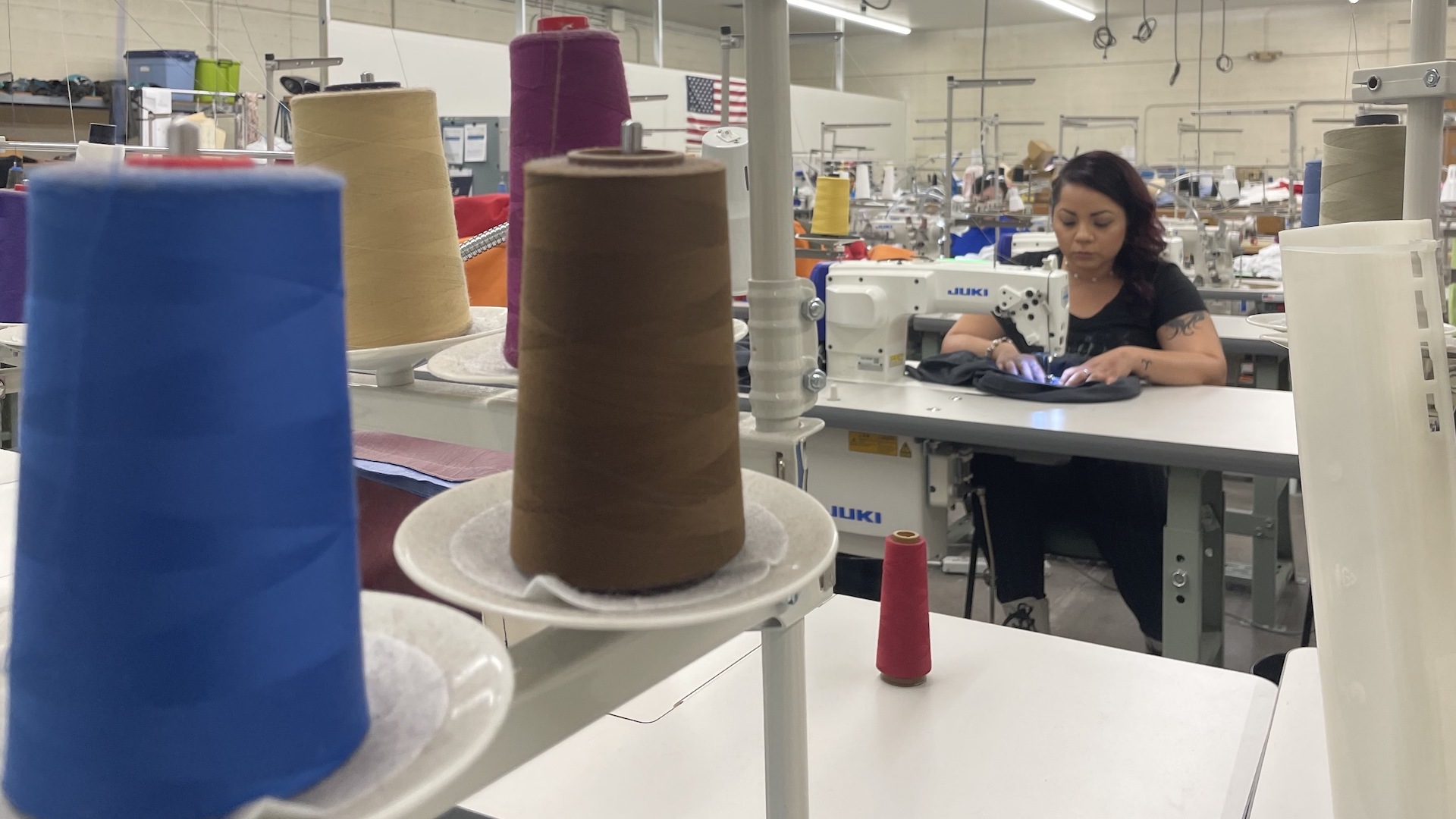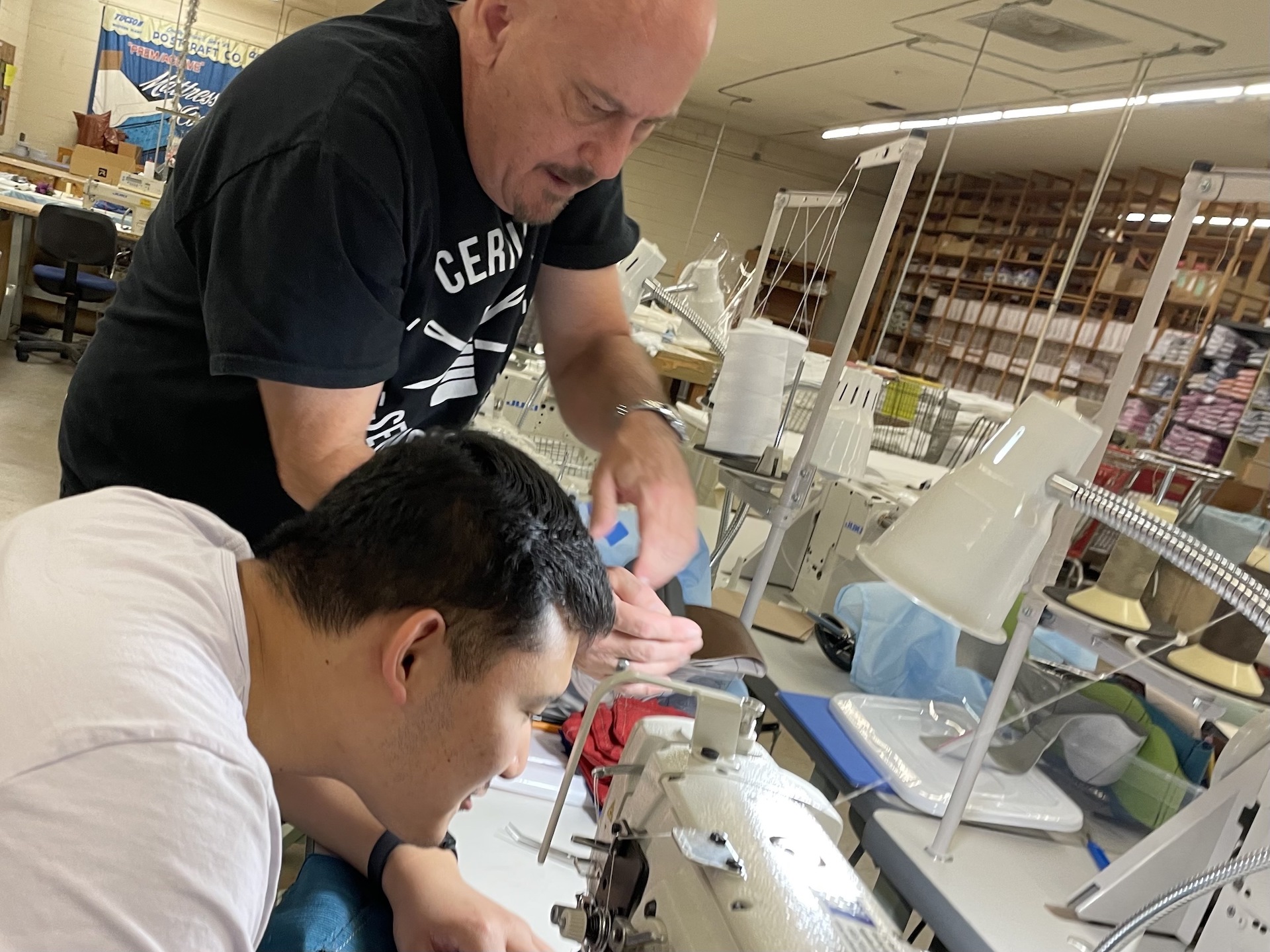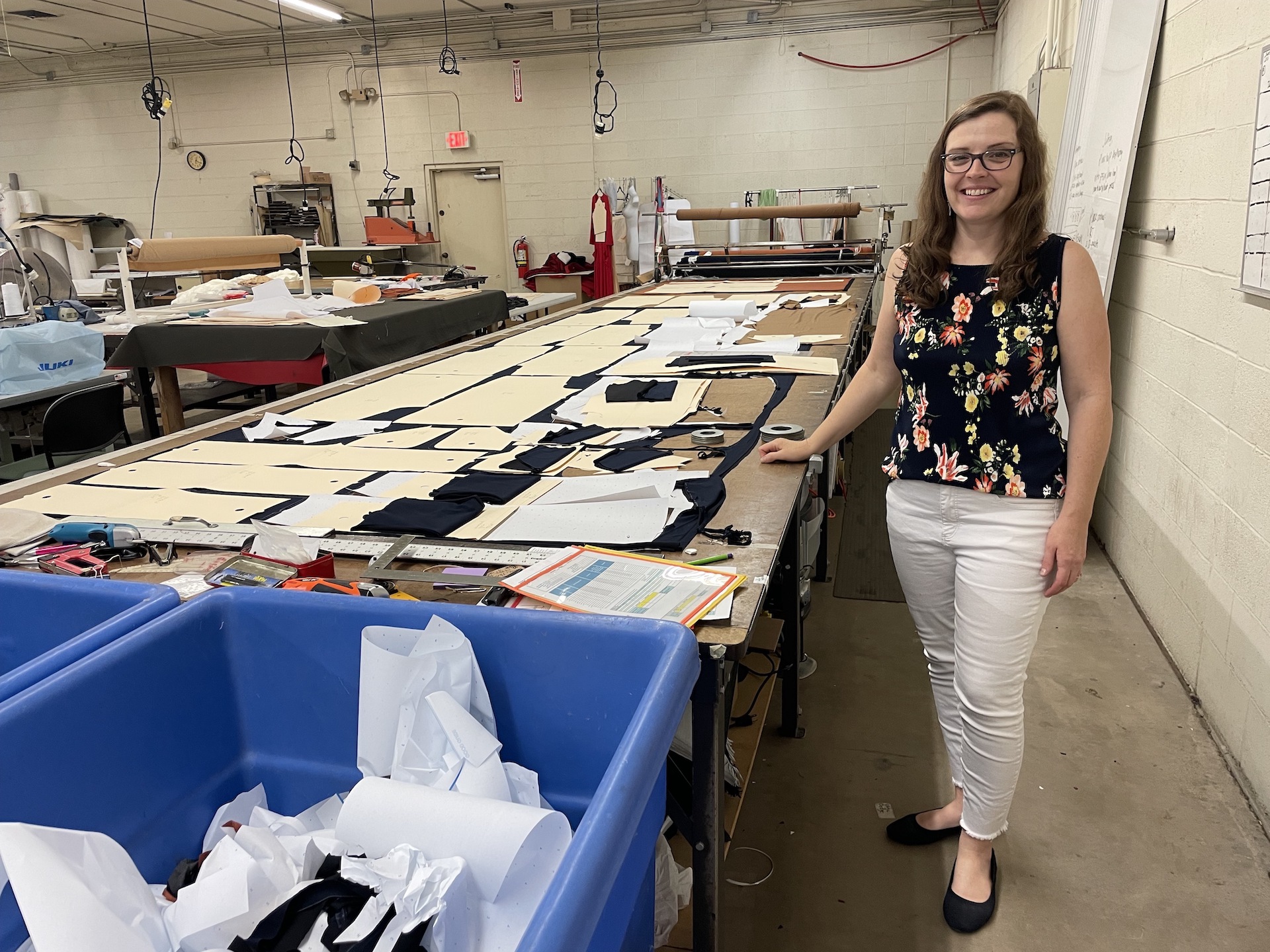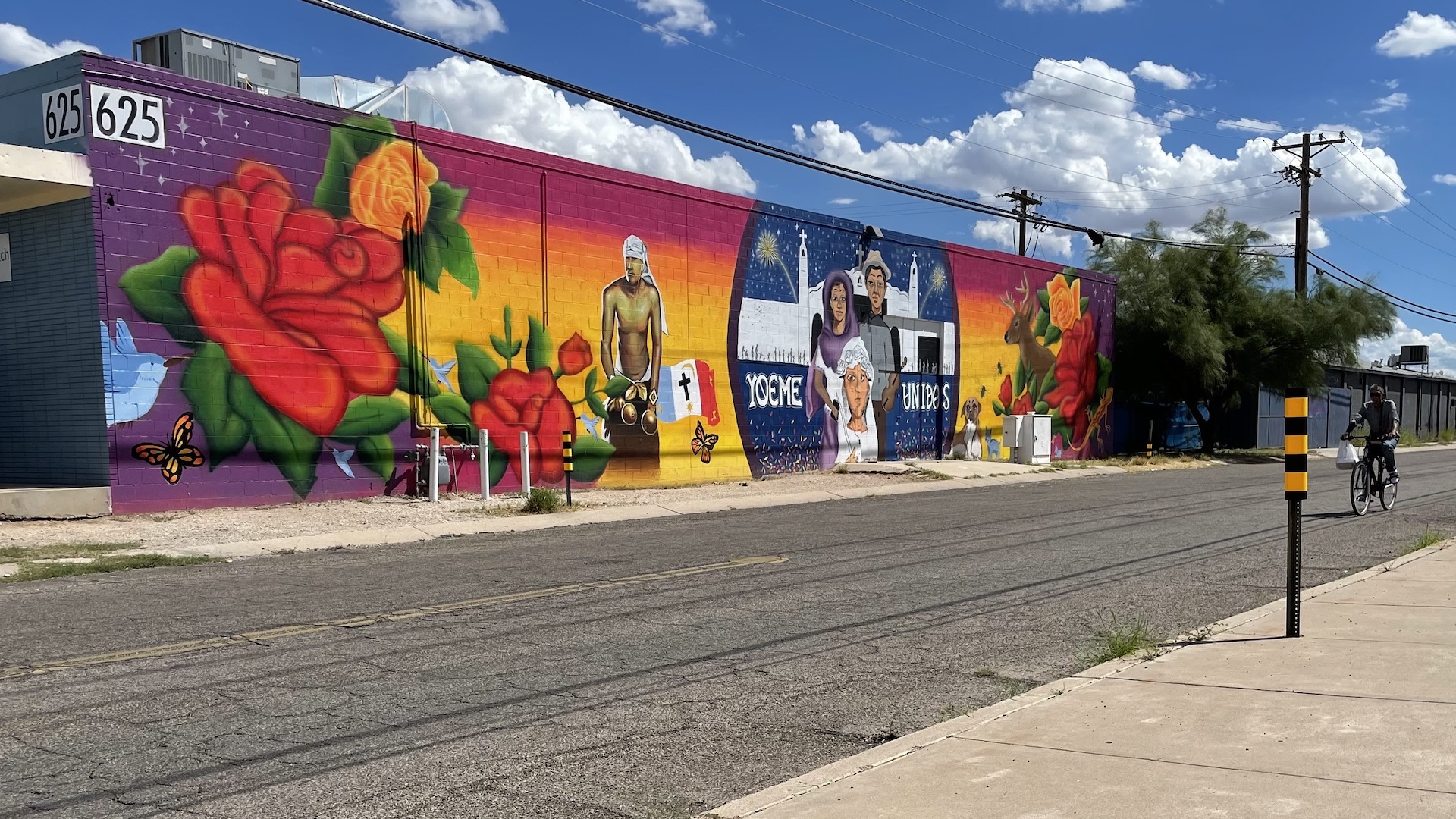 In addition to housing the classes, the Sonoran Stitch Factory also contracts work with businesses in the area.
In addition to housing the classes, the Sonoran Stitch Factory also contracts work with businesses in the area.
Six people were sitting at a table on the edge of a nearly silent warehouse in Tucson. The only sounds that broke the silence were the gentle hums and taps of sewing machines and the occasional, quiet guidance of sewing instructor Dennis Phillips.
They're part of a new, city-funded industrial sewing program in Tucson called the Arizona Stitch Lab that's gearing up for its second year. The classes prepare students to work on sewing projects that range from airplane seats to drapery and clothing, and program leaders say there’s high interest from businesses looking for local workers to help cut down on supply chain issues and deliver on high-quality work.
Phillips currently works for a body armor company when he’s not teaching here, but he has sewn a range of things through his career, from coats to curtains.
And he said he prepares his students to be able to specialize, but also be ready to pivot, like he has.
For him, it’s almost like meditation.
"You get to a point where you're just doing the sewing, but it's all muscle memory, and your mind is 100 miles away," he said. "You're either listening to an audiobook or thinking, you know, great, esoteric thoughts. Figuring out the mysteries to the universe."
 VIEW LARGER Dennis Phillips helps student Alvin Ng through sewing a curtain scallop.
VIEW LARGER Dennis Phillips helps student Alvin Ng through sewing a curtain scallop.
The classes take place at the Sonoran Stitch Factory, which also contracts work for businesses that want local production.
Erica Yngve owns the Sonoran Stitch Factory, and she said several of the products made here are tailor-made for Arizonans, like western wear shirts, gear for hiking in the sun, and gloves.
She helped found the Arizona Stitch Lab with the Pascua Yaqui Tribe and economic development non-profit Moonshot AZ. The city awarded the group $300,000 for two years of courses back in December, and the first course was off the ground the following month.
She said even though this work often gets sent overseas, there are a lot of companies interested in the Sonoran Stitch Factory and the training program.
"I am getting inundated with demand," Yngve said.
She said keeping the production work local means cutting down on the potential for supply chain issues and miscommunication.
"People in Tucson can drive to my factory and actually see it being made, deal with, you know, issues in production or demand or whatever and have their hands right on it," she said.
Trivantage is one of those companies that took immediate interest in the program. It’s a wholesale distributor of fabrics and other items for outdoor upholstery. Account manager Paul Ricciuti says a lot of the work his clients do is custom, and that’s a lot easier to make work when the sewers are local.
"Prior to the economy, having struggles back in like 2005, 2008, there used to be trade schools that taught industrial sewing, but those programs were quickly cut, and they never really returned," he said.
 VIEW LARGER Erica Yngve owns the Sonoran Stitch Factory, and she says there’s high demand for workers who know how to sew in the area.
VIEW LARGER Erica Yngve owns the Sonoran Stitch Factory, and she says there’s high demand for workers who know how to sew in the area. At the Stitch Lab class, Phillips called sewing a solitary sport.
"Sewers are always individualists," he said. "They’re always very unique."
Some of those students, like Ginger Baca, have been sewing for decades.
"I made my own clothes for a number of years and have always wanted to learn upholstery, which is quite different. It teaches you everything that you thought you knew, but didn't," she said.
And others are brand new, like Alvin Ng.
"I've seen my grandmother use those electrical sewing machines, whether it was to hem my clothes or fix my clothes," he said.
He helps set up people looking for work with training programs, and when this one came across his desk, he got the urge to try it himself.
Phillips agrees that finding people who are sewers at heart and bringing them into the industry is rewarding.
"I'm a high school dropout. I wouldn’t have had much opportunity until I got into sewing, and it's really, over the course of time, become a very good career for me. So the ability to pass that on, just really is a nice feeling.
The Stitch Lab is currently taking applications for classes starting in the new year.
 The Sonoran Stitch Factory is located centrally in Tucson in the San Ignacio Yaqui community.
The Sonoran Stitch Factory is located centrally in Tucson in the San Ignacio Yaqui community.

By submitting your comments, you hereby give AZPM the right to post your comments and potentially use them in any other form of media operated by this institution.